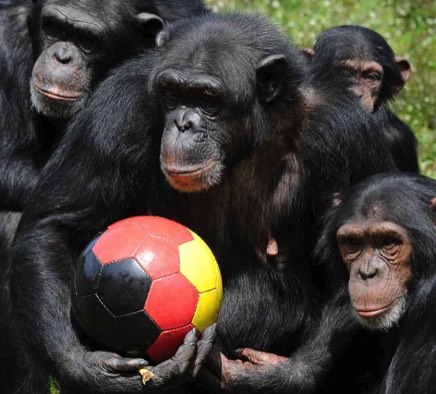
The first use of the name "chimpanzee", however, did not occur until 1738. The name is derived from a Tshiluba language term kivili-chimpenze, which is the local name for the animal and translates loosely as "mockman" or possibly just "ape". The colloquialism "chimp" was most likely coined some time in the late 1870s.[51] Biologists applied Pan as the genus name of the animal. Chimps, as well as other apes, had also been purported to have been known to Western writers in ancient times, but mainly as myths and legends on the edge of European and Arab societal consciousness, mainly through fragmented and sketchy accounts of European adventurers. Apes are mentioned variously by Aristotle, as well as the English Bible, where they are described as having been collected by Solomon. (1 Kings 10:22. However the Hebrew word, qőf, may mean a monkey.) Apes are mentioned in the Qur'an (7:166), where God tells Israelites who transgressed Shabbat "Be ye apes". The first of these early transcontinental chimpanzees came from Angola and were presented as a gift to Frederick Henry, Prince of Orange in 1640, and were followed by a few of its brethren over the next several years. Scientists described these first chimpanzees as "pygmies", and noted the animals' distinct similarities to humans. The next two decades, a number of the creatures were imported into Europe, mainly acquired by various zoological gardens as entertainment for visitors.